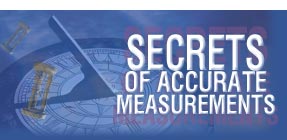 |
 |
 |
| RU |
|
Login
Newsletters
There is no newsletter category found. Information
|
NI and Shanghai University Collaborate on a 5G Ultra-Reliable Low-Latency Testbed for V2X Communications 03/02/2018 National Instruments, the provider of platform-based systems that enable engineers and scientists to solve the world’s greatest engineering challenges, announced plans to collaborate with Shanghai University on a testbed focused on 5G ultra-reliable low-latency communications (URLLC) for V2X applications. Vehicular networks, especially for autonomous driving applications, must offer ultra-reliability while requiring very low latency. Given the conflicting nature of these dual requirements and the unpredictability of the mobile wireless channel, a real-time experimental testbed where researchers can prototype their ideas is vital for success. The planned testbed for this collaboration will be built on NI’s flexible software defined radio (SDR) hardware and a 5G New Radio URLLC reference design. “Shanghai University and the city of Shanghai have committed to be leaders in advancing vehicular technologies especially around autonomous vehicles and V2X communications,” said Shugong Xu, IEEE fellow, professor at Shanghai University and head of the Shanghai Institute for Advanced Communication and Data Science. “We’re excited to leverage NI’s expertise in prototyping 5G wireless systems and collaborate with them to push the boundaries in V2X communications.” James Kimery, director of wireless research and SDR marketing at NI, said that researchers in both industry and academia are using NI’s flexible SDR platform to further the research and test of 5G communications. “We are looking forward to working with Shanghai University to explore low-latency applications such as V2X, which are critical to the 5G ecosystem.” For more details visit www.ni.com/5g. Company profile: National Instruments Related Information:
Companies' news
KIPiS articles
KIPiS News & Events
Trade fairs
|
Current issue
Search
|
|
|
| © "Test & Measuring Instruments and Systems" ("KIPiS"), 2000-2024 |

























